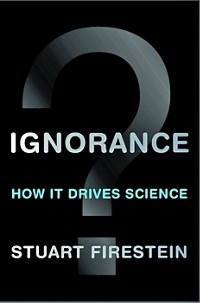Advertisement
Grab your lab coat. Let's get started
Welcome!
Welcome!
Create an account below to get 6 C&EN articles per month, receive newsletters and more - all free.
It seems this is your first time logging in online. Please enter the following information to continue.
As an ACS member you automatically get access to this site. All we need is few more details to create your reading experience.
Not you? Sign in with a different account.
Not you? Sign in with a different account.
ERROR 1
ERROR 1
ERROR 2
ERROR 2
ERROR 2
ERROR 2
ERROR 2
Password and Confirm password must match.
If you have an ACS member number, please enter it here so we can link this account to your membership. (optional)
ERROR 2
ACS values your privacy. By submitting your information, you are gaining access to C&EN and subscribing to our weekly newsletter. We use the information you provide to make your reading experience better, and we will never sell your data to third party members.
Physical Chemistry
Kurt Vonnegut
by Rudy M. Baum, Editor-in-chief
April 23, 2007
| A version of this story appeared in
Volume 85, Issue 17
Kurt Vonnegut, who died on April 11 at the age of 84, is one of the reasons I am a writer. Vonnegut, Joseph Heller, Tom Wolfe, Ken Kesey, Norman Mailer, and other novelists and journalists of the '60s and '70s wrote prose that cut through the intellectual cant of those turbulent and troubled times. They were writers who knew that words are powerful.
Many writers influenced me, but particularly Vonnegut, whose novels bridged the science fiction I loved as a boy and the serious fiction I began to embrace as a teenager. Vonnegut's fiction wasn't really science fiction, of course; it didn't conform to any genre, really. That was what I loved about it. It was free-form, raw, repetitive, and bursting with ideas, emotions, and anger, much like the rock and roll we were listening to.
Vonnegut also understood science and technology and scientists and engineers at a visceral level and incorporated them inventively into his novels. The Tralfamadorians of "Slaughterhouse-Five" who kidnap Billy Pilgrim and a Hollywood starlet to populate a human exhibit at their zoo are able to travel through four dimensions. Pilgrim asks them whether they know how the universe ends, and they reply, "Of course." Doesn't that trouble them? Pilgrim asks. No, they reply, they simply never bother traveling there. It's silly, it's absurd, and it's profoundly true.
The three novels that form the core of Vonnegut's oeuvre are "Slaughterhouse-Five," "God Bless You, Mr. Rosewater," and "Cat's Cradle." "Slaughterhouse-Five" is certainly Vonnegut's best known novel, and very likely his best, but "Cat's Cradle" is my personal favorite. I reread it over the weekend after Vonnegut passed away.
In "Cat's Cradle," an unnamed, first-person narrator who is clearly Vonnegut himself decides to write a book about what important Americans had done on the day when the first atomic bomb was dropped on Hiroshima. It was to be called "The Day the World Ended." In his research, the narrator learns a great deal about one Dr. Felix Hoenikker, by then deceased but, in life, one of the "fathers" of the atomic bomb. Vonnegut's Hoenikker is a caricature of a brilliant scientist—there's a bit of Einstein and a bit of Feynman to him—but it is a caricature with a great deal of truth to it.
The central conceit of "Cat's Cradle" is that Hoenikker's last research project before he died had been inspired by a Marine general who wanted him to do something about mud. Make it go away so Marines no longer had to fight in mud. In response, Hoenikker creates ice-nine, a form of solid water with a freezing point of 114.4 ??F. He doesn't tell anyone about his invention before he dies except his three children, who divide up the highly dangerous material among themselves.
As I recall, eight forms of water ice had been discovered when Vonnegut wrote "Cat's Cradle." (Wikipedia tells me that there are now 14 forms known, including ice IX.) This meant that Vonnegut had bothered to learn a little bit about the chemistry and physics of ice before he wrote "Cat's Cradle," which impressed me a lot.
In "Cat's Cradle," Vonnegut invents a new religion, "Bokononism," and roughly fleshes out some of its tenets. Inventing new, highly irreverent religions, some of which were, at least in part, a response to scientific and technological advances, was another regular element of Vonnegut's fiction.
Vonnegut taught me that skillfully wielded words are powerful, that irony and sardonic humor can prick the smug self-assurance of the powerful, and that a writer's work can help unite dispossessed individuals in their collective response to power. These are important lessons for a young man deciding how to spend his life.
Kurt Vonnegut was never a happy man. He once attempted suicide. One of his mantras was to try to appreciate those moments of happiness that present themselves. I suspect he wasn't very good at it. In reading his obituaries, it appears that his final years were ones during which he was close to despair. So it goes.
For me and many others, Vonnegut was one of those people you never meet who influence your life deeply. If you've never read him, give him a try; if you haven't read him in 30 years, pick him up again. I think you'll be surprised.
Thanks for reading.
Views expressed on this page are those of the author and not necessarily those of ACS.




Join the conversation
Contact the reporter
Submit a Letter to the Editor for publication
Engage with us on Twitter